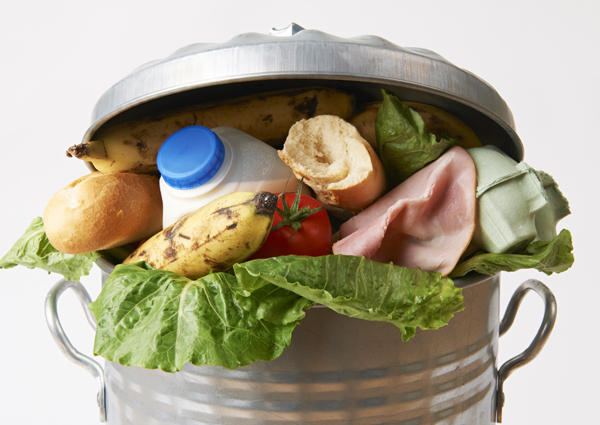Lunchtime Crunchtime worksheet 4-7
- 4-7s
- Waste
This worksheet accompanies the Lunchtime Crunchtime lesson plan
Get students involved and interested in waste reduction and sustainability. Get into the habit of reducing, reusing and recycling waste. Make a difference to the amount of food waste that your school produces and you could help save on food waste related costs and carbon.
Now with NEW maths challenges
Download (396 kb)

ENGLAND
Geography
Place knowledge
Geographical skills and fieldwork
Pupils should be taught to:
Mathematics
Statistics
Pupils should be taught to:
Pupils should be taught to:
• count, read and write numbers to 100 in numerals; count in multiples of twos, fives and tens
• read, write and interpret mathematical statements involving addition (+), subtraction (–) and equals (=) signs
• add and subtract one-digit and two-digit numbers to 20, including zero
• solve one-step problems that involve addition and subtraction, using missing number problems
• count in steps of 2, 3, and 5 from 0, and in tens from any number
• compare and order numbers from 0 up to 100; use <, > and = signs
• add and subtract numbers including: a two-digit number and ones; a two-digit number and tens; two two-digit numbers; adding three one-digit numbers
• recall and use multiplication and division facts for the 2, 5 and 10 multiplication tables
• recognise, find, name and write fractions , , and of a length, shape, set of objects or quantity.
SCOTLAND
Social Studies
People, place & environment
I explore and appreciate the wonder of nature within different environments and have played a part in caring for the environment. (SOC 0-08a)
I can consider ways of looking after my school or community and can encourage others to care for their environment.
(SOC 1-08a)
Mathematics
Information handling
I can collect objects and ask questions to gather information, organising and displaying my findings in different ways. (MNU 0-20a)
I have explored a variety of ways in which data is presented and can ask and answer questions about the information it contains. (MNU 1-20a)
Pupils should be enabled to:
• use addition, subtraction, multiplication and division when solving problems, making best use of the mental strategies and written skills they have developed
• show an understanding of how a single item can be shared equally, and the notation and vocabulary associated with fractions
• find a fraction of an amount by applying their knowledge of division
• compare, describe and show number relationships, using the symbols for equals, not equal to, less than and greater than.
Health and wellbeing
Mental, emotional, social and physical wellbeing Through contributing my views, time and talents, I play a part in bringing about positive change in my school and wider community. (HWB 0-13a / HWB 1-13a)
Technologies
Technological developments in society
Within and beyond my place of learning, I can reduce, re-use and recycle resources I use, to help care for the environment.
(TCH 0-02a)
Throughout all my learning, I take appropriate action to ensure conservation of materials and resources, considering the impact of my actions on the environment.
(TCH 1-02a)
WALES
Geography
1. Geographical Enquiry and Skills
When studying places, pupils should be given opportunities to:
2. Collect and record information
3. Communicate ideas, information and their opinions, e.g. in pictures, speaking, writing.
Mathematics
Number 4. Classifying, Representing and Interpreting Data
Pupils should be taught to:
2. Collect, record and interpret data arising from an area of interest for identified purposes, using an increasing range of charts, diagrams, tables and graphs
Mathematical Development
Pupils are able to:
• read and write numbers to at least 100
• compare and order 2-digit numbers
• use mental recall of number facts to 10 to derive other facts, e.g derive 60 + 40 from knowing 6 + 4
• count in 2s, 10s and 5s to 100
• find halves and quarters in practical situations
• mentally add 10 or 20 to a given number up to 100
• mentally subtract 10 or 20 from a given number up to 100
• solve one- and two-step problems that involve addition and subtraction, multiplication and simple division including missing number problems
• understand and use the different mathematical terms for addition, subtraction, multiplication, division and equals, e.g. find the total, share, goes into
• understand and use mathematical symbols for addition, subtraction, multiplication, division and equals.
NORTHERN IRELAND
The World Around Us
Interdependence
Pupils should be enabled to explore:
interdependence of people and the environment
the effect of people on the natural environment over time
interdependence of people, plants, animals and place
Place
Pupils should be enabled to explore:
positive and negative effects of people on places
Change over Time
Pupils should be enabled to explore:
positive change and how we have a responsibility to make an active contribution
Personal Development and Mutual Understanding - PDMU
Mutual understanding in the local and wider community
Teachers should enable pupils to develop knowledge, understanding and skills in:
developing themselves as members
of a community
Mathematics and Numeracy
Handling data
Collecting, Representing and Interpreting Data
Pupils should be enabled to:
collect data, record and present it using real objects, drawings, tables, mapping diagrams,simple graphs and ICT software
discuss and interpret the data
extract information from a range of charts, diagrams and tables
Pupils should be enabled to:
• count, read, write and order whole numbers, initially to 10, progressing to at least 1000
• recognise and use simple everyday fractions
• understand the operations of addition, subtraction, multiplication and division (without remainders) and use them to solve problems
• know addition and subtraction facts to 20
• develop strategies for adding and subtracting mentally up to the addition of two two-digit numbers within 100.